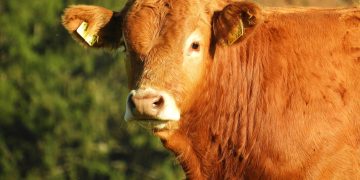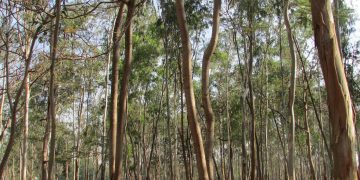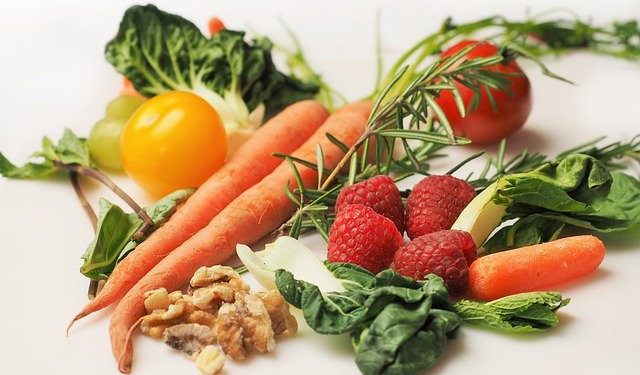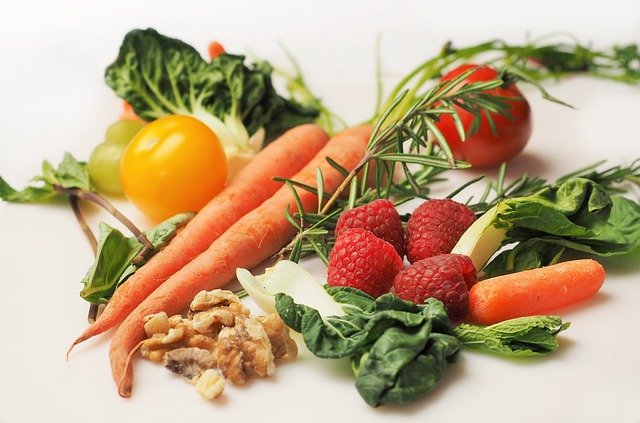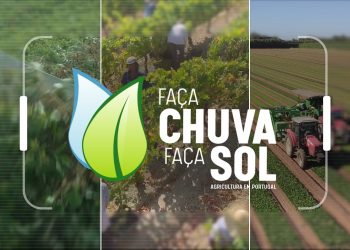They say a lie can travel halfway around the world before the truth puts on its shoes. Barely had the ink dried on the directive by Kenya’s ministerial cabinet’s lifting the 10-year ban on genetically modified organisms (GMOs) than an onslaught by anti-GMO activists went full swing, disparaging GMOs at every turn.
From politicians to civil groups, the anti-GMO activists have grabbed every available opportunity to voice their opposition to the technology and downplay its intended benefits, even as the government and other stakeholders including the Alliance for Science seek to reassure the Kenyan public that the lifting of the ban was meant for the overall good of the country.
It is however clear that the anti-GMO lobby isn’t averse to deploying the occasional fib, a dose of hyperbole, a sprinkling of half-truths or downright distortion of facts to advance its nefarious ends. Here are 8 prominent examples of misinformation on GMOs that emerged right after the government lifted the ban on GMOs, and we shall see why the claims are not true.
- Activist claims GMOs will upset Kenya’s seed sovereignty
Writing for The Elephant, anti-GMO activist Claire Nasike avers that GMOs would threaten food and seed sovereignty by “holding farmers in debt cycles that reduce their ability to produce more food for consumption.”
She claimed that lifting the ban on GMOs would expose farmers to the “exorbitant prices” of GM seeds, anticipating that the farmers – most of who are smallholders – would be locked into debt cycles in efforts to pay for seeds that were themselves acquired through loans.
It’s best to put the economics of seed access by small holders in Kenya in context, Bt cotton probably serves as the best empirical locus.
Two years after Kenya approved the commercial cultivation of Bt cotton, there has hardly been any disquiet among farmers over seed availability or loss of control by outside forces as imputed.
Granted, Bt cotton seeds cost higher than conventional cotton seeds, but evidence shows that the cost of seeds is offset by the relatively lower input costs and ultimately the higher yields realized under Bt cotton cultivation. Cotton farmers in the country have in the past conceded that, despite the higher cost of Bt cotton seeds, “the returns are worth it if the crop is managed well”.
It is also a fact that certified (non-GMO) seeds have always costed a premium in Kenya, but this has not resulted in the adversities envisaged by the activist. So why would GMO seeds play out any differently?
The assertion about GMO seeds being charged “exorbitant” prices would therefore amount to an overkill, and so is the claim that GMO seeds would condemn smallholders to debt cycles.
- Burkina Faso’s alleged “failed experiment” with Bt cotton
This is such a commonly bandied example in anti-GMO rhetoric in the continent, often juxtaposed against mismatched variables, and the developments in Kenya provided one such opportunity.
Activist Claire Nasike alleges that the same Bt cotton variety adopted in Burkina Faso has been adopted in Kenya, implying that the hiccups that ensued in the West African country should befall Kenya with the same consequences.
The argument takes a simplistic approach by transposing the factors from one country’s experience to another without adequately involving all the underlying contextual determinants.
Burkina Faso introduced Bt cotton farming in 2008 but abandoned the crop in 2015 following concerns over the quality and fiber length of the lint, which fetched lower prices. The reason for the disappointing results was that developers had modified a variety that was not suited to widespread production.
But there was no question that Bt cotton was the result of superior breeding technology. Farmers had seen their yields and incomes rising during the period growing Bt cotton, and pesticide pollution was dramatically cut. Even anti-GMO leagues have had to concede this reality.
Experts have noted that there are other Bt cotton varieties that have excellent fiber quality that equals or exceeds conventional varieties, and the failure in Burkina Faso arose because the Bt seeds were not backcrossed enough before commercial release.
“The Bt trait was not incorporated into the very best lines,” notes AUDA-NEPAD. “The National Seed Company and Monsanto (now Bayer) are aware of the issue and are working to fix this.
Farmers in Burkina Faso were particularly hit by the decision to phase out Bt cotton, having enjoyed the higher production margins and revenues realized under the GMO cotton cultivation.
Speaking to the Alliance, president of the Union of Cotton Producers in Burkina Faso Francois Traore said, “All farmers who have experience with Bt cotton are regretting the shift from Bt to conventional cotton… but they are helpless and hope that the government will listen to their plea.”
- The claim that Kenya lacks capacity to regulate GMOs
Anti-GMO lobbyists have often cast shade on the capacities of respective national regulatory mechanisms to effectively oversight GMOs within their respective jurisdictions. It is a commonly taken line in African countries.
In Nigeria, for instance, civil groups opposed to GMOs have in the past downplayed the ability of the country’s National Bio-safety Management Agency (NBMA) to undertake its mandate, claims the NBMA has refuted.
Thus, this was hardly surprising when it happened in Kenya. Local activist formations also echoed the charge, questioning the ability of the National Biosafety Authority to regulate GMOs.
But various local experts have affirmed that Kenya has the capacity to effectively regulate GMOs.
Additionally, AUDA-NEPAD assures that all biosafety regulatory bodies in African countries involved in biotechnology have scientific advisory committees comprised of highly qualified scientists trained in relevant areas of biotechnology and biosafety in renowned universities in Africa and overseas.
“The committees review all biotech applications in their countries and make recommendations for the regulatory bodies to make informed decisions,” states the Agency.
- Challenging the safety of GMO foods
Opposition political coalition Azimio la Umoja One Kenya Alliance, in a widely-publicized statement, cast aspersions on the safety of GMOs and urged the government to rethink its decision.
“Science has shown grey areas in as far as the safety of consumption of GMOs is concerned,” read a statement by the coalition. “This poses a grave challenge to already emaciated health care system in the long term.”
Numerous credible and authoritative bodies have affirmed the safety of GMOs, with the assurance that GMOs undergo rigorous regulations that certify their safety for human use.
“GM foods currently available on the international market have passed safety assessments and are not likely to present risks for human health. In addition, no effects on human health have been shown as a result of the consumption of such foods by the general population in the countries where they have been approved,” states the World Health Organization (WHO).
- Senator claims that GMOs will result in children with multiple limbs
Overall, Ledama is an astute and erudite orator on multiple issues affecting his Narok constituents and the country at large. He is a visible and influential figure in Kenya’s top media channels, But on GMOs, the Senator has variously missed the mark by a long shot.
“Let us all say no to GMOs. We don’t want kids being born with 15 fingers,” he railed.
The Senator didn’t quote any science showing how consumption of GMOs would lead to births of multi-limbed children. Neither did he provide any examples of such a phenomenon.
- Allowing GMOs amounts to “corporate capture” by multinationals
This claim emerged strongly following the lifting of the ban, with the gist that by adopting GMOs, Kenyans would effectively be ceding control of their farming to powerful multinationals that would dictate the terms.
It is important to note that despite the lifting of the ban, farmers in Kenya continue to enjoy the same freedom they had to choose whichever seed varieties they wish to plant. GMO seeds will be availed to willing farmers, who will have all the liberty to decide whether to plant GMOs or conventional varieties.
The same liberty will extend to consumers, who will choose between GMOs and conventional varieties following mandatory labelling guidelines that will enable the public to distinguish the two categories.
- The claim that Africa has enough land to feed itself through conventional varieties
The claim that GMO are unnecessary is patently false in light of the current drought situation affecting millions in Horn of Africa including Kenya, Somalia and Ethiopia. The situation that calls for more resilient crop varieties.
Kenya is in the throes of the worst drought to hit the country in four decades, leading to massive crop failure and crippling food shortages in many regions.
The government’s decision to lift the ban on GMOs was part of medium to long term responses to the drought. It is part of broader measures that will significantly redefine the country’s agriculture through adoption of crops that are drought tolerant, resistant to pests and disease.
A notable example is maize, whose production has been significantly affected by the fall armyworm (FAW), which was first reported in 2017 and has led to massive losses in yields and revenue.
Scientists from the Kenya Agricultural and Livestock Research Organisation (KALRO) have been working on a Bt maize variety under the Water Efficient Maize for Africa (WEMA) project, that has been shown to resist the FAW invasion and thereby save farmers from losses. Similar work has been undertaken to develop pest-resistant cassava varieties.
- False: Allegation that Kenyans don’t want GMOs
A closer look at ongoing dialogue on the subject reveals that a growing number of people acknowledging that GMOs have a role to play in improving agricultural productivity and providing much-needed resilience to climate-related adversities.
Interviews with farmers who have been confronted with the challenge of crop pests and diseases have also revealed that farmers were eager to see the ban lifted so as to pave way for GMO crop varieties that promised better yields and revenues.
In a TV interview just days after the ban, Cabinet Secretary (CS) in the Ministry of Investments, Trade and Industry Moses Kuria urged Kenyans to shed off previous reservations they may have had with GMOs.
The Cabinet Secretary(CS) assured them that GMOs are a safe and viable option for Kenya’s food security while noting that GMOs have been used by many other countries with no adverse effects.
The CS further revealed that Kenya has been losing out on attractive trade opportunities in the past due to the ban on GMOs.
O artigo foi publicado originalmente em Cornell Alliance for Science.






